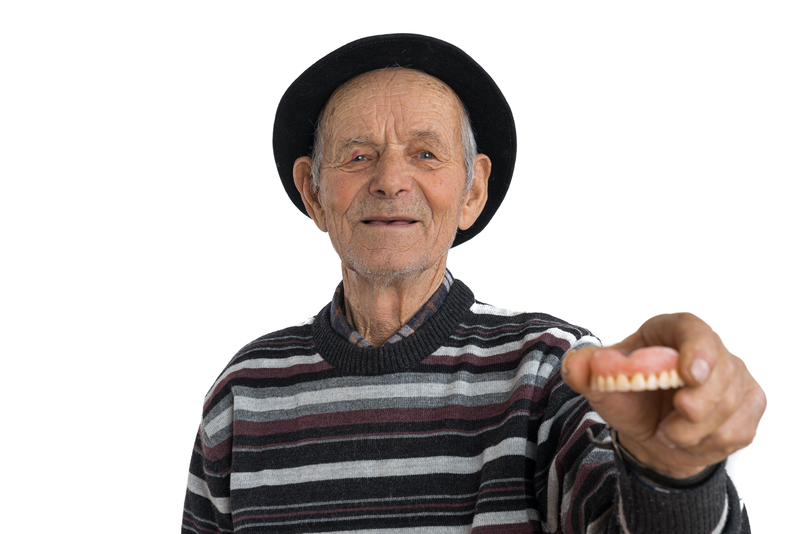Age is your number one (#1) risk for developing Alzheimer’s

Why is age your number one risk for developing Alzheimer’s Disease?
Well, when you think about the fact that we humans are made up of over 100 trillion cells…And as our body ages, those cells all become less and less effective. The reason for this phenomena is greatly debated and under constant study. And when science finally figures it out, someone will have found the ephemeral “Fountain of Youth”. But until that time, all that science can guaranty is that your cells – and therefore your body – is responding with 99%, then 95%, then 89% of the 100% you require of it to battle whatever life sends your way. Meaning age makes you less effective at everything, including fighting off infection from outside yourself and even from within yourself.
And when it comes protecting you, this same diminished return is seen time and time again. Your skin, which is our largest organ and what protects us from what our world throws at us, looses cells at an alarming rate as we age. The consequence? Epidermal atrophy, aka a lack of flexibility – or wrinkles. The skin cuts easier, heals slower and is more prone to issues related to exposure (sun/wind/temperature).
Where your skin is your largest organ, your most protected organ is your brain. It doesn’t co-mingle with the other organs and systems in your body. Instead, your brain is securely on it’s own to manage all the stimulating inputs and resulting outputs it must manage 24/7/365. Without your brain, you will cease to exist.
Something this important to your survival (the brain) has a superior defense system which starts with the Blood Brain Barrier (BBB). Different than one would think, this unique fortress exists on a cellular level – not globally as we see with the skull. And because each cell in the entire brain is protected by a membrane that is covered by cells that are literally joined together, the BBB can tightly restrict what can enter the cell. This defense, which can keep bad things out 100% of the time when you are younger, becomes looser and less strict as you age. And with the loosening of these tight junctions, things the brain doesn’t want to let in start to come in.
You might be wondering what types of bad things can gain access to the “immune privileged brain”? Opportunistic pathogens such as bacteria and virus that are floating around in the bloodstream – either from your mouth, your gut or your respiratory and urinary tracts.
And because every year that we age, the brain’s BBB becomes weaker, your odds of these opportunistic pathogens getting past your brain’s BBB increases. And in the case of the microbial hypothesis that the Alzheimer’s Legacy Lab will be working to prove or disprove – having a bacteria enter your brain can potentially result in Alzheimer’s Disease. And this risk increases every decade you live beyond 50. So preventing Alzheimer’s will be your best bet before a cure is discovered.
- Interestingly, the top 10 countries with the highest Alzheimer’s death rates – (meaning highest Alzheimer’s Risk) were also among the healthiest countries. This contradiction has had researchers confused until realizing that these healthier countries also have the highest life expectancy rates. Because their residents are so healthy (Finland as an example), their healthy residents don’t die of heart attacks, or cancer, allowing them to live long enough to contract this disease because, though science has figured out how to prevent some cancers and most heart disease, it still doesn’t know how to slow the degradation of the BBB as the brain ages.
But this “natural” part of aging doesn’t have to result in Alzheimer’s if you have a solid Alzheimer’s Prevention Strategy.
So what can you do to prevent Alzheimer’s as your risk due to age increases?
FIRST: step up your oral hygiene program – see the dentist regularly and follow their direction as if they are prescribing you an Alzheimer’s medication. If you are told you need to receive more professional cleanings in a year – do it! If you are told you need costlier periodontal treatments – do it! and if you’re told that you need to step up your oral home care routine – do it! And ask your hygienist or dentist to SHOW you how to floss and how to brush. Most patients do it incorrectly. Check back as we will be posting a video on proper flossing and brushing techniques.
SECOND: Buy Hydrogen peroxide (3% – it’s in a brown bottle in the pharmacy section of your general store) and swish it in your mouth for 30 seconds 2-3 times a week. Not only will this soften coffee and wine stains, but it will kill a lot of the bad bacteria that can harm your gums.
THIRD: Stop eating sugar. Sugar inflames your cells. Inflammation compromises your cells, making them less productive / effective. And High Fructose Corn Syrup – the worst sugar of all – interrupts your production of insulin and can result in high blood sugar levels, weight gain and potentially diabetes.
FOURTH: Get Exercise for at minimum 13 minutes a day: Walk for it. Bike for it. Swim for it. Exercise as if you’re taking a medicine. Because it actually is medicinal in all reality.
FIFTH: Though it’s best to consume all your vitamins and minerals from your diet, most of us simply don’t. To make sure you’re not deficient in the key immune-boosters, and cell-builders – at the very least, think about taking the following supplements in pill form:
- Vitamin B multivitamin
- Vitamin D
- Vitamin E
- Magnesium
- Calcium
Always be sure to take these and all medications you are prescribed only as recommended. And be sure to inform your medical doctor which supplements you are taking so they can add all of them into your medication list. Better yet, bring the bottles with you to your next appointment so you can discuss how you are feeling as a result of adding them into your diet. Also ask your doctor what else you might think to take – and if they say you don’t need anything, ask to check your levels before making changes (adding or subtracting) as most of us are deficient in some of these and wouldn’t even know it. And face it, these levels are rarely checked by doctors – so how would they know if you are or are not deficient? Test them if there’s disagreement!
SIXTH: Make sure you are getting the best sleep possible so your brain can clear itself of the debris that it produces during your day. This may mean that you stop drinking coffee after noon; take shorter (or no) naps during the day; institute a “wind-down” routine before bed; get exercise during your day; and drop your room temperature to 65 overnight.
SEVENTH: Drop the stress – make an effort to surround yourself with things that make you happy and bring you joy because stress negatively impacts your body’s immune system – especially as we age.
EIGHTH: Challenge your brain into working harder. Think of it as giving your brain the exercise it desperately needs to stay fit. Studies have found that those of us who read more, study more, memorize more and do puzzles – have greater cognitive reserves (think a fuller gas tank) that allow them to postpone the effects of dementia longer (and possibly entirely) than those folks who don’t exercise their brains on a daily basis.
The Curing Alzheimer’s Disease Foundation of Saint Paul Minnesota wants you to live the best life possible – free of Alzheimer’s Disease! As we work toward a cure, Prevention is your best medicine, which starts with addressing your number one risk for Alzheimer’s – the aging brain – by eating better, thinking better, sleeping better and taking better care of your overall health – which includes your dental health.

